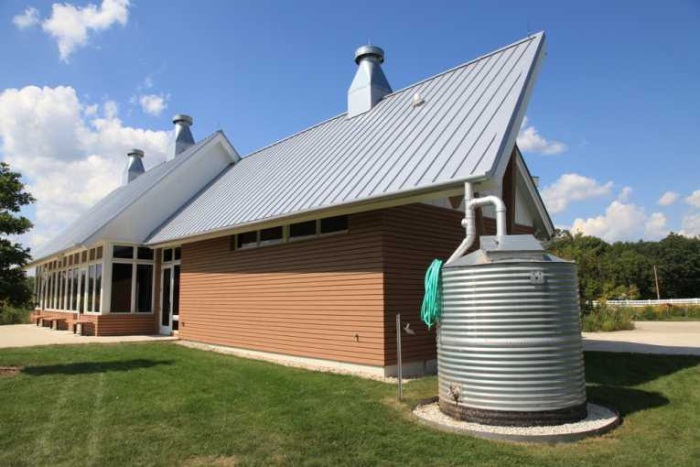Rainwater harvesting campaign in Kenya has been launched to harvest water as the long rains continued to fall. Small-scale water harvesting farm ponds will be built around the country and Kenyans urged to harvest water in their homes.
Water and Irrigation Cabinet Secretary Eugene Wamalwa, at the campaign launch in Gigiri said that the initiative on rainwater harvesting and management campaign can be sustained, leaving possible options to tackle the recurrent droughts and floods simultaneously.
The ‘Kenyan Chapter of the Billion Dollar Business Alliance for Rainwater Harvesting’ movement will boost investments for increasing farm ponds for one million smaller holder farmers.
This is after studies released by the World Agroforestry Centre and Unep shows the rainfall received in Kenyaas enough to supply the needs of six to seven times its current population, the problem lying in Kenya’s failure to store the rainwater.
Currently, Kenya’s per capita water is less than 600 cubic meters, which is below the global threshold of 1,000 resulting in the country being categorized among chronically water scarce nations.
Kenya’s rainwater potential is more than 350Bn cubic meters, which when captured and managed is enough to support a population of 233m people or close to five times the current population of Kenya.
The Billion Dollar Business Alliance is the vehicle created by the Government and alliance members to increase per-capita storage from less than 100 cubic meters in 2017 to a potential of 7,400 cubic meters in 2030.
According to the National director of World Vision Kenya, Mr John Makoni, in charge of drylands development, the five-year plan is funded by the Netherlands and is supporting rainwater harvesting for crop and livestock among 34,500 farmers using sand dams and farm ponds in Machakos, Makueni and Kitui.
The proposed project in Kenya is expected to help farmers who lack access to capital to procure a liner for the farm pond and other equipment. Kenya’s arid and semi-arid regions can produce surplus food if runoff water is properly harvested because soils in the arid lands are fertile.
National development targets on increasing the area under irrigation as contained in the Vision 2030 plan are unachievable due to limited water resources and financing, according to the Water principal secretary, Mr Fred Segor.
An added advantage of the water harvesting initiative is the involvement of inexpensive technology.
